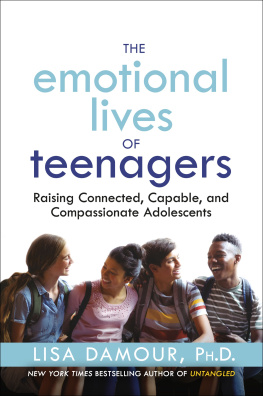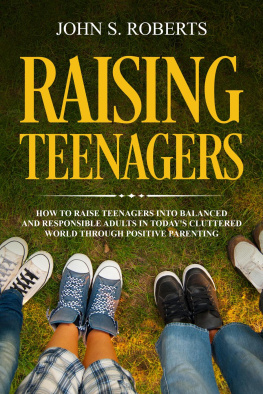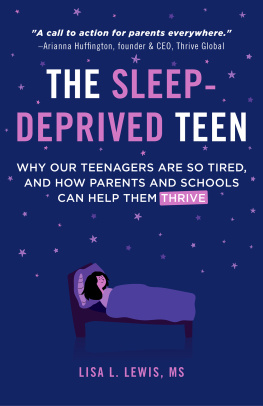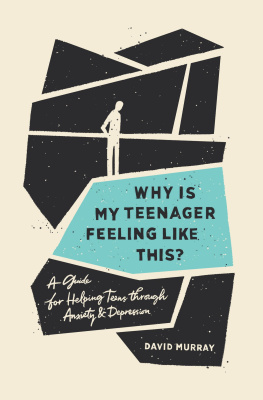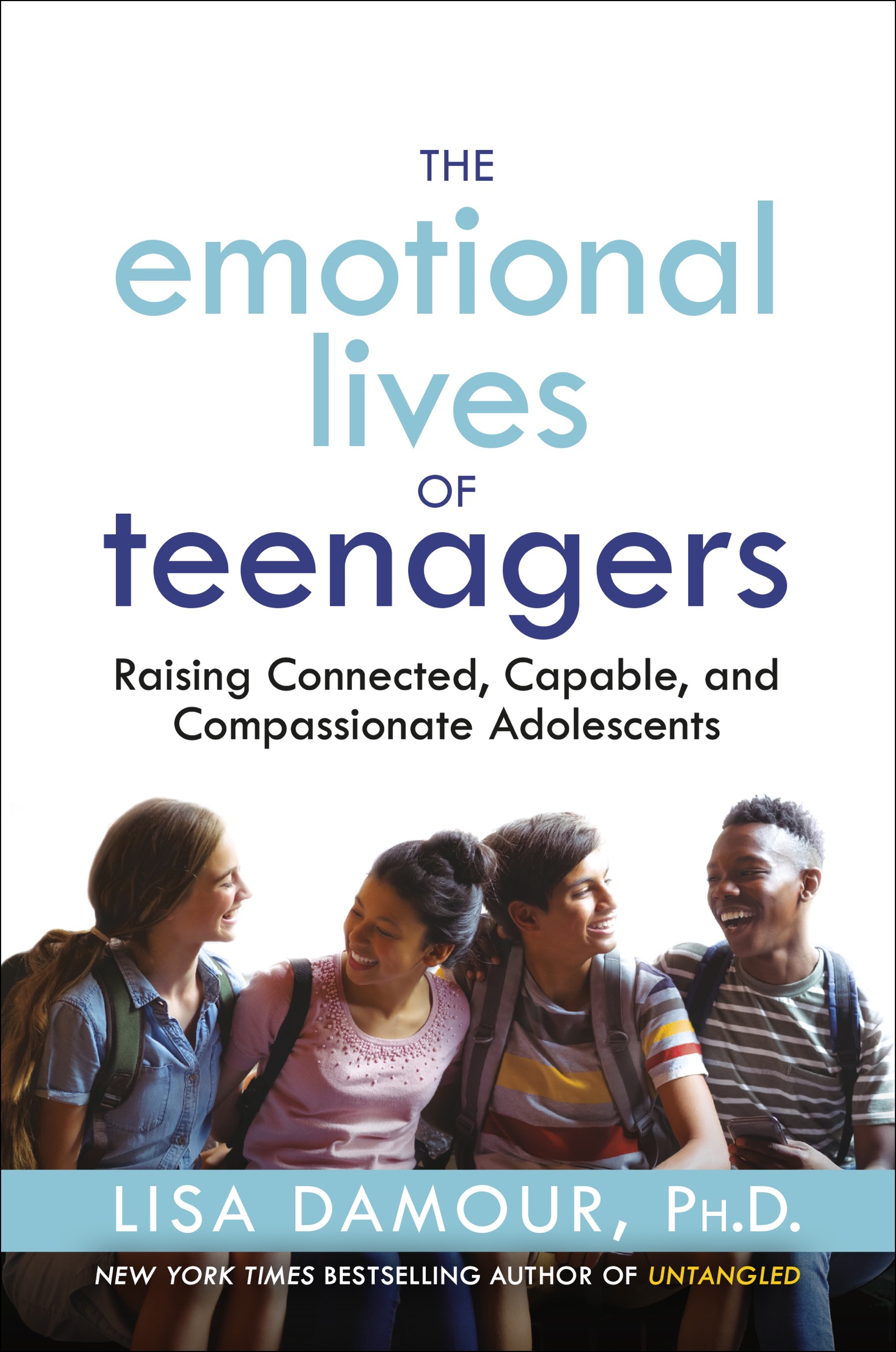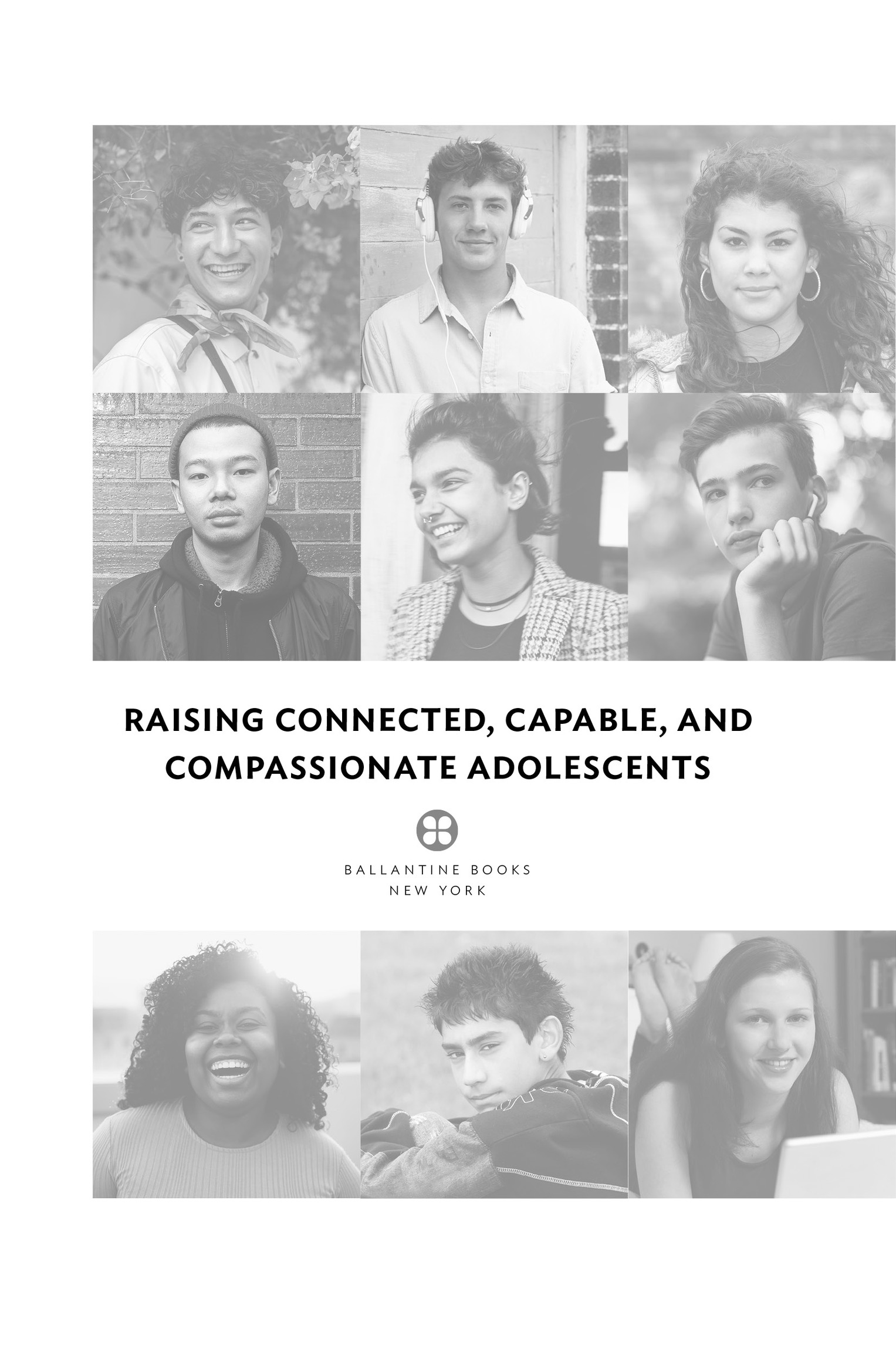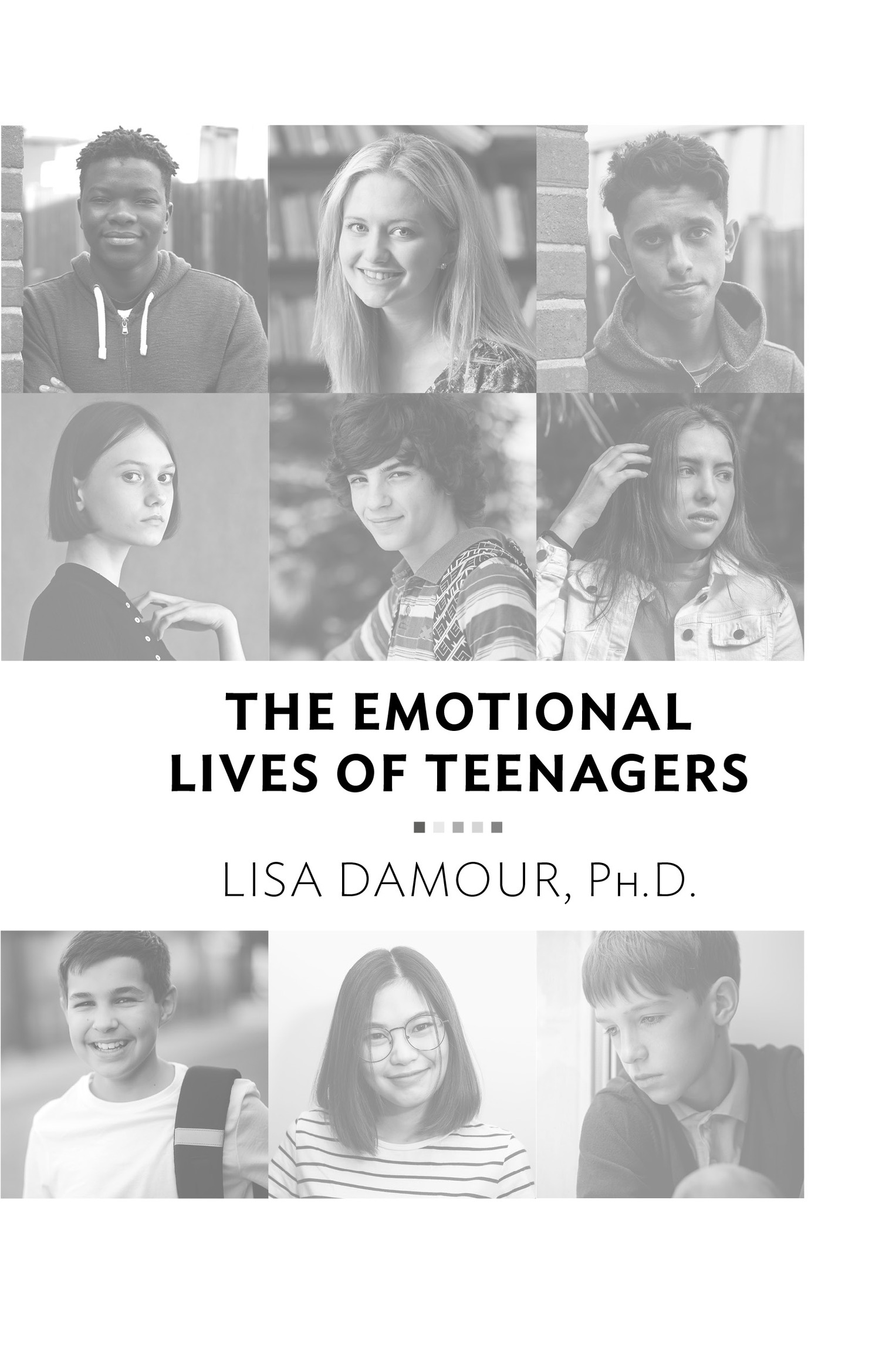Contents
Landmarks
Print Page List
The advice contained within this book does not constituteor serve as a substitute forprofessional psychological treatment, therapy, or other types of professional advice or intervention. Some names and details have been changed to protect the confidentiality of Dr. Damours clients. Any resemblance to actual persons, living or dead, or actual events is purely coincidental.
Copyright 2023 by Lisa Damour
All rights reserved.
Published in the United States by Ballantine Books, an imprint of Random House, a division of Penguin Random House LLC, New York.
Ballantine is a registered trademark and the colophon is a trademark of Penguin Random House LLC.
Grateful acknowledgment is made to Taylor & Francis Ltd. for permission to reprint an excerpt from pg. 275 of Anna Freud (1958) Adolescence, The Psychoanalytic Study of the Child 13:1, 255-278, https://doi.org/10.1080/00797308.1958.11823182. Reprinted by permission of the publisher, Taylor & Francis Ltd, http://www.tandfonline.com.
Library of Congress Cataloging-in-Publication Data
Names: Damour, Lisa, author.
Title: The emotional lives of teenagers: raising connected, capable, and compassionate adolescents / Lisa Damour, Ph.D.
Description: First edition. | New York: Ballantine Group, 2023.
Identifiers: LCCN 2022032622 (print) | LCCN 2022032623 (ebook) | ISBN 9780593500019 (hardcover) | ISBN 9780593500026 (ebook)
Subjects: LCSH: Emotions in adolescence. | TeenagersSocial conditions. | Parent and teenager.
Classification: LCC BF 724.3. e 5 D 36 2023 (print) | LCC BF 724.3. E 5 (ebook) | DDC 155.5/124dc23/eng/20220729
LC record available at https://lccn.loc.gov/2022032622
LC ebook record available at https://lccn.loc.gov/2022032623
Ebook ISBN9780593500026
randomhousebooks.com
Images on : Franciso; highwaystarz; a4stockphotos; bestforlater91; iordani; Valua Vitaly; DisoberyArt; ; auremar; FABIAN PONCE GARCIA; Aleksandr; themorningglory; rimmdream/all via stock.adobe.com
Book design by Simon M. Sullivan, adapted for ebook
Cover design: Rebecca Lown
Cover photograph: Wavebreakmedia/Getty Images
ep_prh_6.0_142492539_c0_r1
Contents
_142492539_
I take it that it is normal for an adolescent to behave for a considerable length of time in an inconsistent and unpredictable manner; to fight his impulses and to accept themto love his parents and to hate themto revolt against them and be dependent on themto be more idealistic, artistic, generous, and unselfish than he will ever be again, but also the opposite: self-centered, egoistic, calculating. Such fluctuations between extreme opposites would be deemed highly abnormal at any other time of life. At this time they signify no more than that an adult structure of personality takes a long time to emerge.
Anna Freud (1958)
It is a deep comfort to children to discover that their feelings are a normal part of the human experience.
Haim Ginott (1965)
In June 2021, I got a call from a friend Ive known since middle school. We caught up briefly about what had happened in our lives and our families since we last talked, and then she said, Actually, theres a reason Im callingIm really worried about Will. Can I run something by you?
Of course, I replied, recalling that her son Will, like my own older daughter, was about to be a high school senior.
A couple of weeks ago, we learned that my husbands company is transferring us to Seattle. Were moving at the end of the summer and Will is a mess about it. He loves his friends and his school here in Denver and he cant believe that were uprooting him right before his senior year. Hes been incredibly cranky, and in the last couple of days hes even gotten tearful about it. I dont know what to say to make things better, and Im getting worried that he might be depressed.
Is his mood down all the time, or does it rise and fall in waves? I asked.
It rises and falls. When hes not thinking about moving, he actually seems to be okay. He has a job that he likes, and hes plenty happy when hes hanging out with his friends. But when the topic of the move comes up, he gets so, so sad. I dont know what to do, and cant tell if I should be worried.
Listen, I said, I dont think hes depressed. But lets stay in close touch, because Ill want to know if his mood stops going up and down and instead he starts spending most of his time feeling cranky, numb, or blue. From what youre telling me, it sounds as if hes unhappy specifically about the movethat hes feeling sad and angry about it.
Absolutely, said my friend.
But I dont consider these grounds for concern. Actually, I think those feelings are evidence of his good mental health.
Really? How?
Well, being upset about moving right before senior yearespecially when hes happy in Denveris an entirely appropriate response. Id actually be more worried about Will if it didnt bother him at all.
That makes sense, I guess, my friend said, but how am I supposed to help him through it?
There are two things you can do. First, reassure Will that hes having the right reaction. Just as its hard for you to see him so upset, having such painful emotions is probably uncomfortable for him, too. You can help to put his mind at ease by letting him know that what hes feeling makes sense. Second, try to get comfortable with the idea that hes probably going to continue to be unhappy about the situation, at least until he gets settled in the fall. Rather than working to prevent or chase away his discomfort, focus your attention on helping him find ways to manage the distress hes feeling.
For teenagers, powerful emotions are a feature, not a bug. This has always been true, but these days it seems to be less widely understood. The past decade especially has been marked by a dramatic shift in how we talk and think about feelings in general and, in particular, about the intense emotions that characterize adolescence.
To put it bluntly, somewhere along the way we became afraid of being unhappy.
When I received my first license to practice clinically as a psychologist nearly thirty years ago, I had been steeped in a training program that embraced the full range of emotiona spectrum of feelings from the most pleasant to the leastas an expectable and essential aspect of the human experience.
My training taught me to regard adolescents emotional landscapes with an observant, unafraid eye. I have always understood psychotherapy to be a joint enterprise in which I guide the teenagers in my care to share my curiosity about their inner lives. We work from the unspoken assumption that every one of their emotions makes sense, that their difficult feelingsanger, frustration, sadness, worry, and the resthappen for a reason, even when the reasons for them are unclear. Though of course Im there to help them feel better, the aim of our work is less about comfort and more about insight. When teenagers

